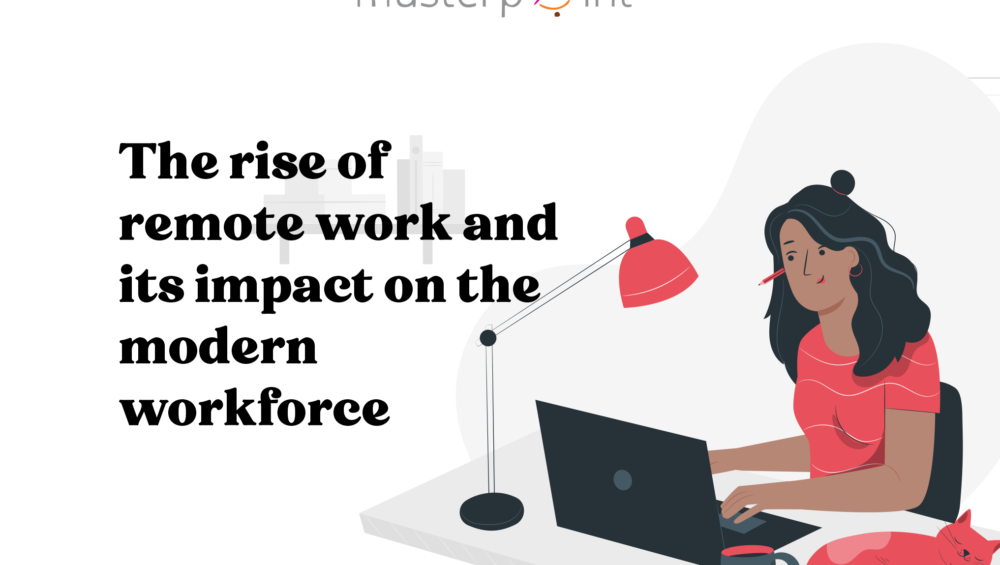Working remotely is carrying out tasks away from a regular office or workplace, usually from home or another location. The expansion of remote employment, commonly referred to as telecommuting or teleworking, has had a profound effect on the contemporary workforce.
By removing the need for a commute and lowering costs related to working in an office, can also save employees time and money. Flexibility is one of the key advantages of remote employment. Employees can better manage their calendars and their lives outside of work.
The COVID-19 pandemic has accelerated the trend towards remote work, with many businesses adopting work-from-home policies to keep their employees safe and comply with social distancing measures. However, remote work was already on the rise even before the pandemic, as technology has made it increasingly possible for people to work from anywhere.
The impact of remote work on the modern workforce has been significant. Here are some key ways in which it has changed the way we work:
Flexibility: Remote work offers greater flexibility in terms of when and where work is done. This can be particularly beneficial for people with caregiving responsibilities or those who live in areas with limited job opportunities.
Productivity: Many studies have shown that remote workers can be more productive than their office-based counterparts. Remote workers often have fewer distractions and can focus more easily on their work.
Cost savings: Remote work can save both employees’ and employers’ money on commuting costs, office space, and other expenses associated with working in a physical location.
Work-life balance: Remote work can make it easier for people to balance their work and personal lives. Without a commute, workers have more time to spend with family and pursue hobbies and interests.
Challenges: Remote work can also present challenges, such as difficulty collaborating with colleagues, isolation, and blurred boundaries between work and personal time. Employers need to provide the right tools and support to help remote workers overcome these challenges.
Overall, the rise of remote work has had a significant impact on the modern workforce, offering both benefits and challenges. As technology continues to advance, it’s likely that remote work will become an increasingly important part of the way we work in the future.

